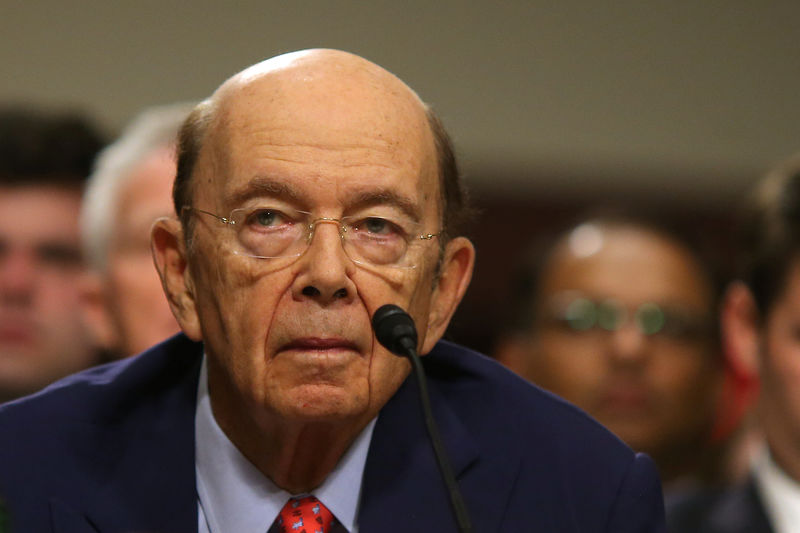By David Lawder
WASHINGTON (Reuters) - Billionaire investor Wilbur Ross, U.S. President-elect Donald Trump's choice for commerce secretary, voiced sharp criticism of China's trade practices on Wednesday, telling senators he would seek new ways of combating them.
In his confirmation hearing, Ross also said that renegotiating the North American Free Trade agreement with Mexico and Canada would likely be the Trump administration's first priority, calling it a "very, very early topic."
Ross, who made his fortune turning around troubled companies in steel, auto parts, textiles and other industries, called China the "most protectionist" country among large economies, with high tariff and non-tariff barriers to imports.
The 79-year-old billionaire vowed to level the playing field for U.S. companies competing with Chinese imports and those trying to do business in China. Chinese officials, he said, "talk much more about free trade than they actually practice. We would like to levelize that playing field and bring the realities a bit closer to the rhetoric."
His comments came a day after Chinese President Xi Jinping took the stage in Davos, Switzerland, to defend free trade and make the case for a greater global leadership role for Beijing, describing China's economy as "wide open."
Ross said state-owned enterprises in China were a particular problem that needed to be dealt with, charging that up to one-third have never made a profit and this has fueled overcapacity that has led to dumping of products such as steel and aluminum.
"They're being kept alive by state-owned banks. To me that looks and feels and tastes a lot like artificial subsidies," he said, adding that the Commerce Department will be "very scrupulous" in identifying unfair subsidies that require countervailing duties.
Ross did not specifically mention Trump's threats to levy punitive tariffs on Chinese goods imported into the United States, but said countries that dump products below costs or fail to provide a fair trading field should be "severely punished."
He said he would pay particular attention to sectors in need of anti-dumping tariffs, including steel and aluminum. The Commerce Department may initiate some anti-dumping and anti-subsidy cases on its own, rather than relying on private companies to build the cases, to shorten the processing time, he said.
Ross also was critical of moves by Chinese firms to buy control of U.S. entertainment and distributors when Beijing was denying such opportunities to U.S. firms in China.
Trump has criticized China's trade practices and NAFTA, accusing both of causing millions of manufacturing job losses in the United States. The president-elect has pledged to renegotiate NAFTA to be more favorable to U.S. manufacturers or leave the 23-year-old trade pact.
The Toronto Globe and Mail newspaper reported on Wednesday that Ross had informed Canadian officials that a formal request for negotiations would be sent within days of Trump's inauguration on Friday, with rules of origin a priority.
Ross said it was possible for the U.S. economy to grow faster than the Obama administration. It could achieve about 3 percent growth by adopting Trump's proposals to roll back some business regulations, expand domestic energy production, reduce U.S. trade deficits and rebuild crumbling domestic infrastructure, he said.
Ross also said more wireless telecommunications spectrum, sales of which are managed by the Commerce Department, was needed by the private sector. He pledged to press government and military agencies that control it to release what they do not need.
"I am not anti-trade. I am pro-trade," Ross said. "But I am pro-sensible trade, not trade that is to the disadvantage of the American worker and to the American manufacturing community."

Ross disclosed on Tuesday that he would sell investments valued at up to about $300 million, including his stake in his private equity firm, to avoid conflicts of interest as commerce secretary. The position's responsibilities range from trade enforcement and economic data publication to telecommunications auctions and weather forecasting. {nL1N1F720V]